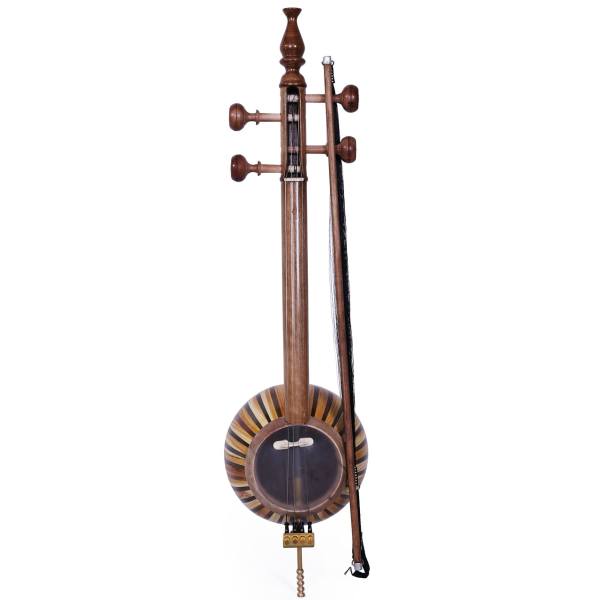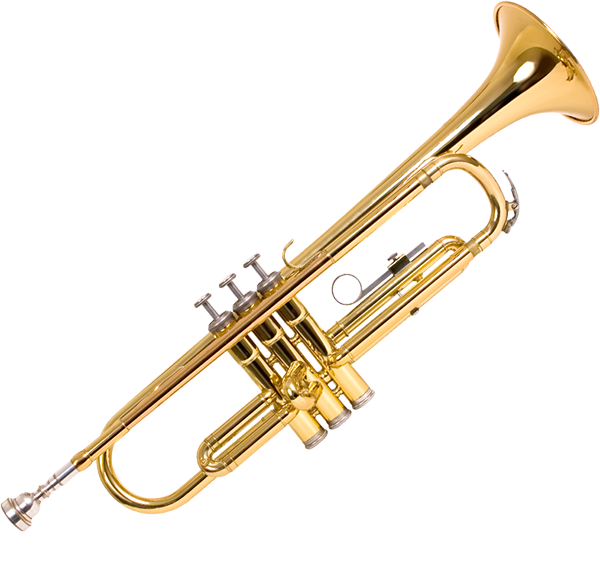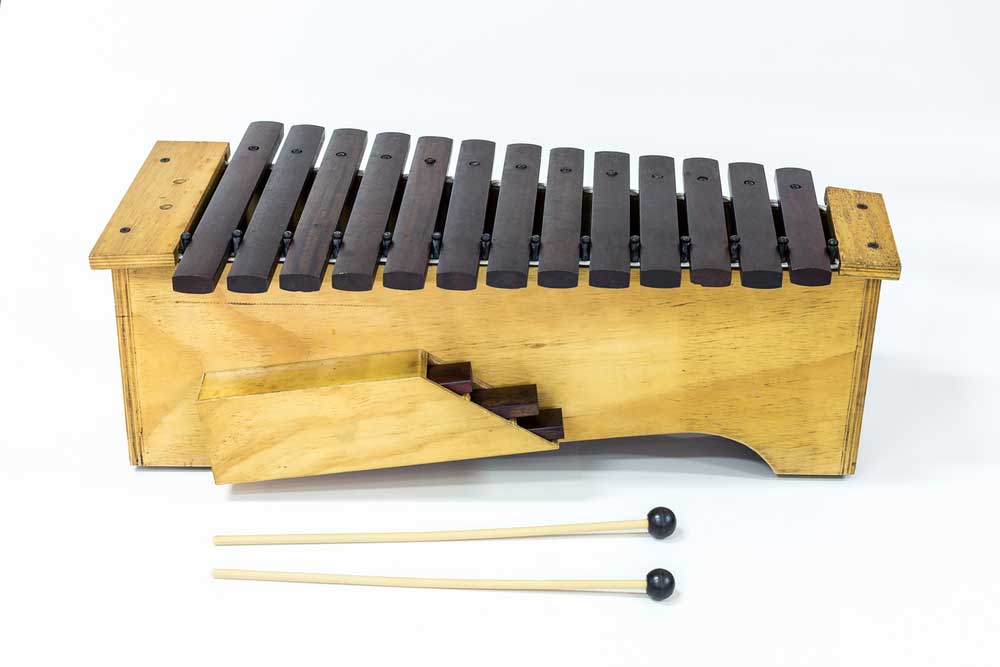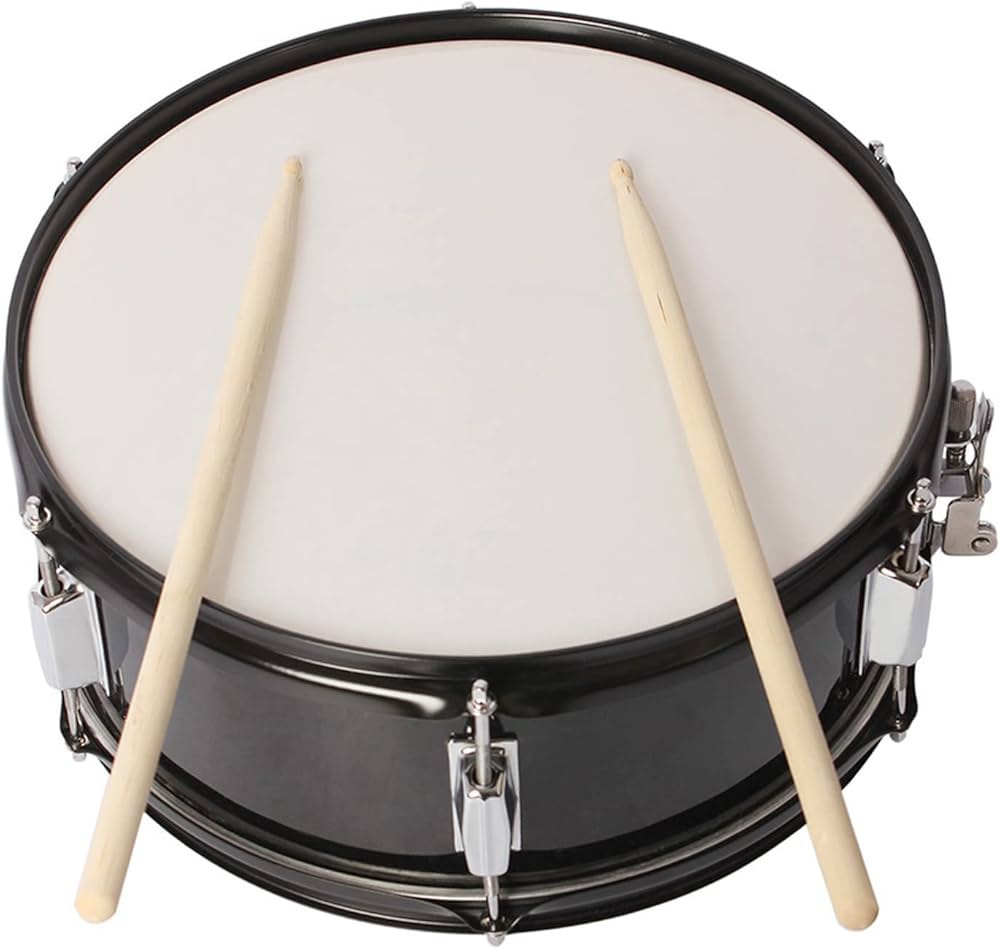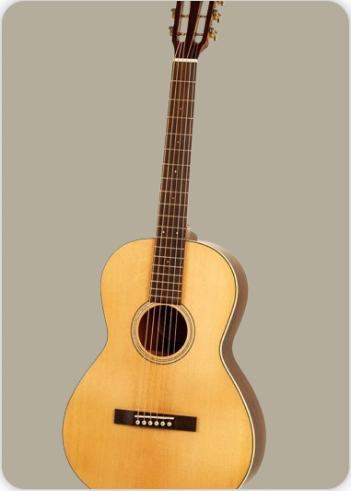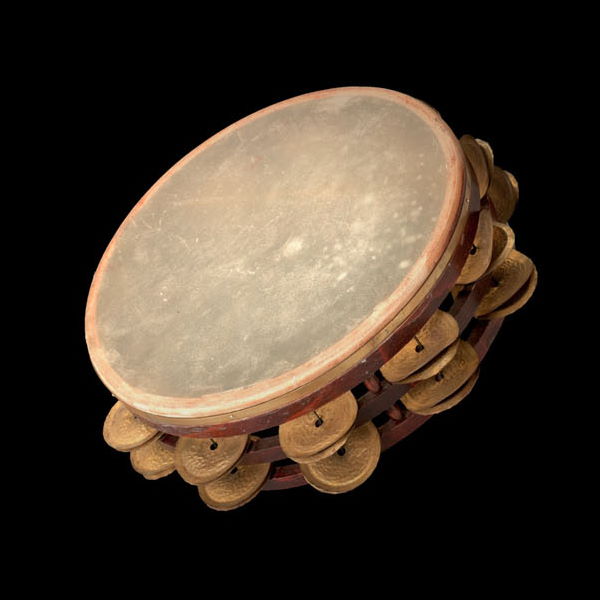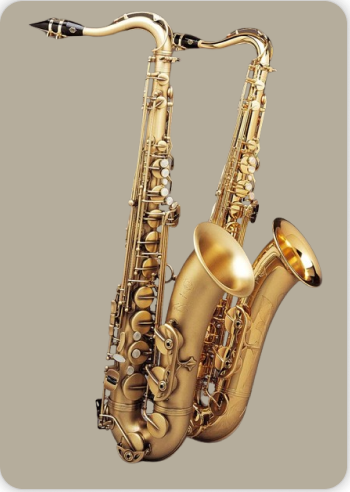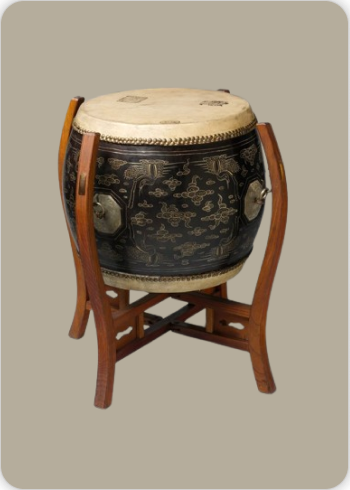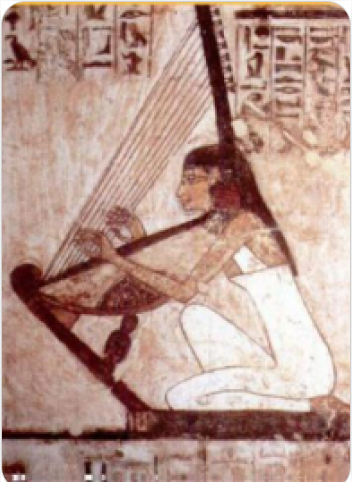Tambourine
Percussions
Middle East
Ancient
Video
The tambourine is a highly versatile percussion instrument that has captivated musicians across cultures for centuries. Known for its distinct jingling sound, it plays a central role in various musical traditions, adding rhythm and texture to compositions worldwide.
Historical Background
The origins of the tambourine can be traced back to ancient civilizations, including Egypt, Mesopotamia, and Greece, where it was used in religious and celebratory contexts. Known as the tof by the Hebrews, the tambourine was often played by women during sacred temple rituals. The term “tambourine” itself is derived from the French word tambourin, meaning “small drum,” influenced by the Arabic tunbur and Persian tambur, both referencing drum-like instruments.
Construction and Design
The tambourine typically consists of a circular wooden or plastic frame with pairs of metal jingles, known as zils, attached around the edges. Some tambourines also include a drumhead made from either animal skin or synthetic materials, allowing for added rhythmic diversity. While the traditional tambourine is round, modern variations include other shapes and mounted versions that can be incorporated into drum kits.
Playing Techniques
Tambourines can be played in a variety of ways, depending on the musical context. They are commonly held in one hand and struck with the other, either by using the palm or fingers to produce sharp, rhythmic accents. When mounted on a stand, the tambourine can also be played with drumsticks, which allows for a consistent, percussive effect in more structured rhythms.
Role in Music
The tambourine has a broad cultural significance, appearing in diverse genres from Mediterranean folk music to Afro-Cuban rhythms, Turkish and Greek dances, and Latin American traditions. The instrument also holds a unique place in gospel and popular music. Introduced into orchestras in the 18th century, the tambourine soon became a favored instrument for adding color and rhythmic flair to classical compositions, particularly in dance sequences.
Modern Evolution
In the 1930s, composer Carl Orff included the tambourine in his influential music education method, popularizing it as a tool for teaching rhythm to young learners. Today, the tambourine remains a staple in modern music, used widely in rock bands, orchestras, and educational settings, showcasing its adaptability and timeless appeal.
With its characteristic jingling and rhythmic versatility, the tambourine continues to enrich musical compositions worldwide, solidifying its role as both a cultural and musical icon.
FAQ
Where did the tambourine originate?
The tambourine originated in ancient civilizations, including Egypt and Mesopotamia, and was also used in early Greek and Hebrew cultures for religious ceremonies and celebrations.
How is the tambourine typically constructed?
A tambourine consists of a circular frame, usually made from wood or plastic, with metal jingles attached. Some models also include a drumhead made from animal skin or synthetic materials.
What are the basic playing techniques for the tambourine?
The tambourine can be played by holding it in one hand while striking it with the other hand. It may also be mounted and struck with a drumstick for more rhythmic precision.
In what types of music is the tambourine used?
The tambourine is widely used in genres such as folk, gospel, pop, and classical music. It is also a staple in traditional music from countries like Italy, Turkey, and Greece.
How has the tambourine evolved in modern music?
Since the 1930s, the tambourine has become an educational tool in music learning and remains popular in rock, pop, and orchestral settings for its rhythmic versatility.
 Links
Links
References
Other Instrument
Categories
